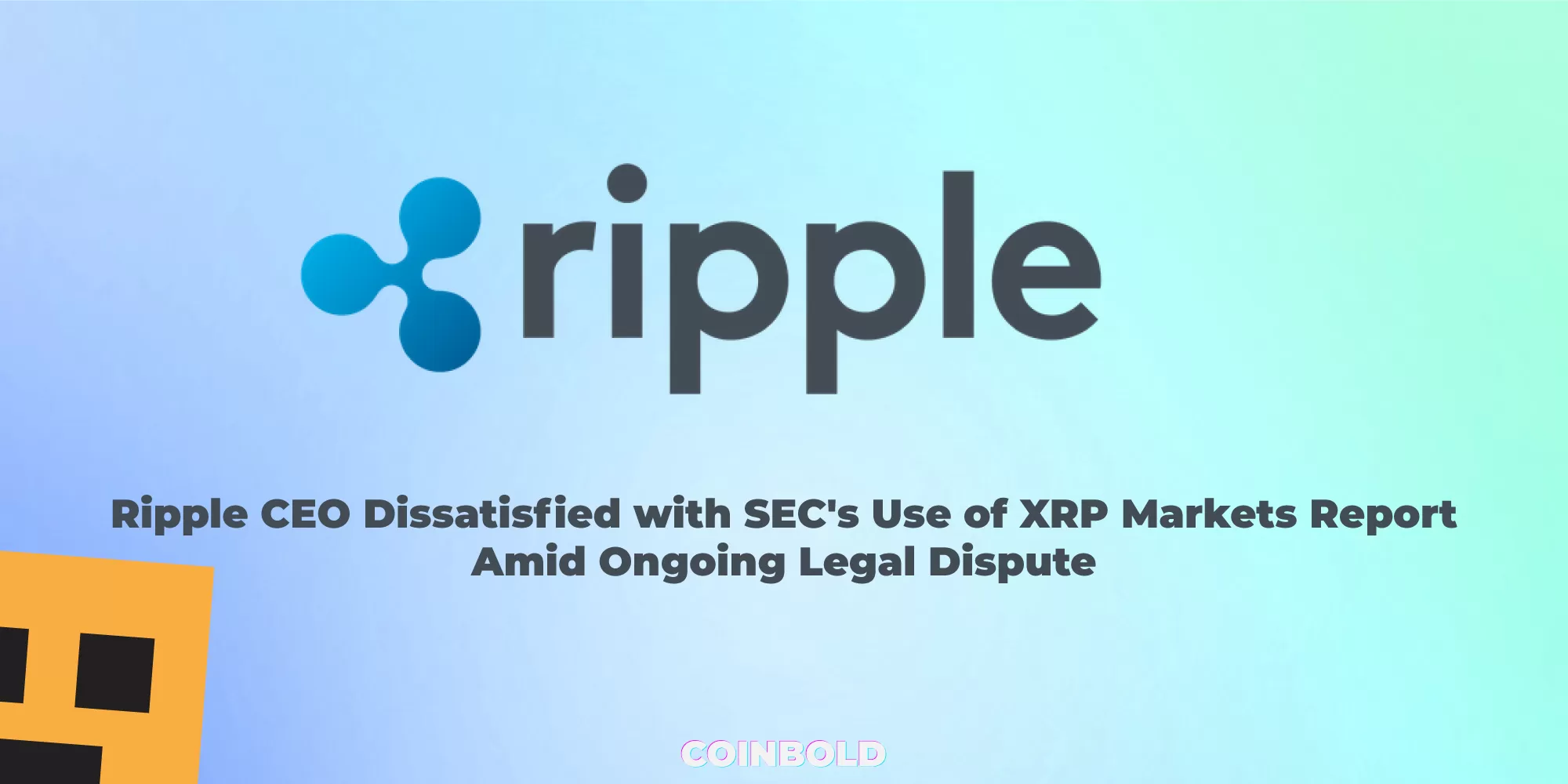In a recent turn of events, Ripple’s CEO, Brad Garlinghouse, expressed his frustration with the United States Securities and Exchange Commission (SEC) regarding the utilization of Ripple’s quarterly XRP Markets Report. Initially created to foster transparency and provide updates about XRP holdings, these reports are now being used as evidence against the company in the ongoing legal battle with the SEC.
We began these reports to voluntarily provide updates given our XRP holdings. Sadly, they were used against us in the SEC lawsuit – however, we remain steadfast in our commitment to transparency but I suspect they’re going to look a bit different moving forward https://t.co/oANR6WCG09
— Brad Garlinghouse (@bgarlinghouse) August 2, 2023
Garlinghouse remains committed to transparency but hinted at potential changes in future reports to avoid further complications. The situation arose after the SEC leveraged these reports to build its case against Ripple, creating an unexpected setback for the company.
Ripple’s Q2 2023 XRP Markets Report: Key Highlights
On July 31st, Ripple published its XRP markets report for the second quarter of 2023, focusing on crucial highlights. The report emphasized the impact of the summary judgment ruling by Judge Torres, aiming to clarify misconceptions and offer insights into Ripple’s XRP holdings.
The report revealed a significant increase in Ripple’s XRP holdings, growing from 5,506,585,918 to 5,551,119,094, reflecting an approximate gain of 45 million XRP. Additionally, the total XRP held in on-ledger escrow saw a decrease of nearly 1 billion, attributed to the surging market demand for XRP.
Ripple’s Battle against the SEC: XRP Classification and Misconceptions
Following the significant ruling by Judge Torres on July 13th, determining that XRP is not a security, Ripple acknowledged the victory. However, the company clarified that while not all XRP sales fall under the security classification, sales conducted through written contracts could potentially be considered investment contracts and therefore subject to security regulations.
In response to criticisms and misconceptions surrounding the ruling, Ripple emphasized that although XRP might not be labeled as a security in certain scenarios, it could still carry that classification under specific conditions.
XRP Lawyer Voices Strong Objections against SEC’s Approach
Notably, XRP lawyer John Deaton took to Twitter to voice strong objections against the SEC’s usage of Ripple’s quarterly reports as evidence in the ongoing lawsuit against the company and its executives. Deaton highlighted the voluntary nature of Ripple’s report releases, contrasting it with other companies that not only hide token sales but also deliberately obscure such transactions.
It is absolutely true that the SEC used the transparency of these reports against Ripple and its two executives. As a private company, Ripple was under no obligation to share this info. Other companies not only didn’t share token sales, but intentionally disguised those… https://t.co/mbAO6feEfW
— John E Deaton (@JohnEDeaton1) August 2, 2023
Ripple’s Path Forward: Striving for Transparency and Legal Clarity
Despite the challenges posed by the SEC’s utilization of their reports, Ripple remains resolute in its commitment to transparency. Garlinghouse’s statement reflected the company’s determination to overcome the obstacles and navigate through the ongoing legal dispute with the SEC.
The situation has shed light on the significance of regulatory clarity in the cryptocurrency industry. As the landscape continues to evolve, it becomes essential for companies like Ripple to proactively address regulatory concerns and work towards a more transparent and compliant future.
In conclusion, Ripple’s CEO Brad Garlinghouse’s dissatisfaction with the SEC’s use of the XRP Markets Report underscores the complexities and challenges faced by the company in the ongoing legal dispute. Despite this setback, Ripple remains committed to transparency and is determined to find a way forward while striving for regulatory clarity within the cryptocurrency space. The battle with the SEC not only affects Ripple but also has broader implications for the industry, making it crucial for stakeholders to collaborate and engage in open dialogue with regulators to foster a more secure and well-defined crypto ecosystem.

